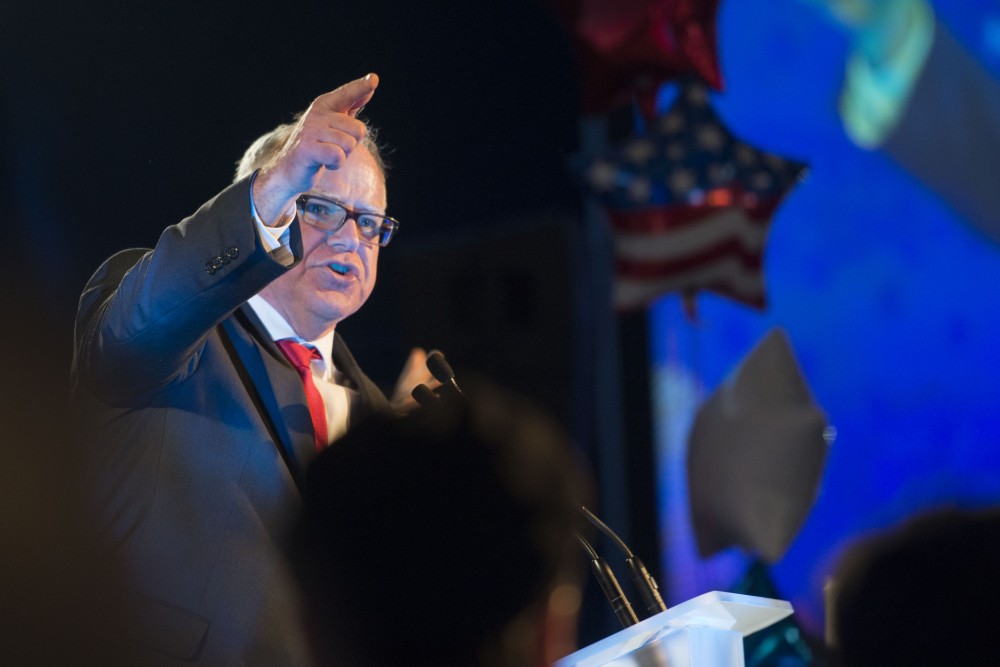Minnesota Gov. Tim Walz discussed his political priorities on campus Wednesday amid interruptions by protesters.
Walz talked about his upcoming biennial budget proposal, health care and education at the event hosted by the Humphrey School of Public Affairs. The visit comes a day after Walz announced an appeal renewal of the proposed Line 3 Pipeline in northern Minnesota, promoting around a dozen protesters to show up.
Former Gov. Mark Dayton filed an appeal of Enbridge Energy’s Line 3 Pipeline with the state in late 2018. Walz also filed an appeal this week to further review the pipeline’s construction. Despite the appeal’s extension, protesters say Walz needs to take a stronger stance on the issue.
“Just because he’s continuing the appeals process in no way means the pipeline is going to get stopped,” said Nick Knighton, a University junior studying environmental justice, education and ecology. “We need other means in stopping this pipeline, which is an executive action, and a total stay in construction, which is in his power.”
Knighton said the appeal is a political move, not a permanent solution to the problem.
“The appeals process is just a guise to satisfy us and to have us stop putting pressure on him,” he said.
Protesters held signs opposing the pipeline and calling for more transparency on the issue. They confronted Walz with questions about the pipeline’s affect on the environment and Minnesota’s indigenous communities, but were asked to leave about 20 minutes into the event.
While he supported the protesters, Walz said more discussion on the pipeline will be critical.
“If you want to dialogue, come dialogue. If you want to protest, protest, but the two don’t have to be at odds with one another,” he said.
After protesters left, Walz continued to discuss his budget. He said his budget proposal would focus on long-term investments like education and health care.
“I feel very strongly that a budget is a moral document as well as a fiscal document. It’s going to be a reflection of our values,” Walz told the crowd.
Walz also voiced support for felon voting rights and marijuana legalization for adults age 21 and older.
“Prohibition rarely works,” Walz said about marijuana. “I tend to trust adults to make adult decisions.”
The protesters wanted to disrupt a standard policy event to bring attention to their cause, said Nancy Feldis, a University senior studying cultural studies and comparative literature.
“We were expecting it to be uncomfortable for the audience and uncomfortable for Walz, but the point is it’s uncomfortable for all of us to live in a planet that doesn’t work anymore,” Feldis said.








